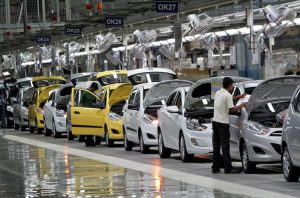The Union government’s push for electric vehicles (EVs) has made automobile parts makers, especially engine manufacturers, wary of putting in more money into their businesses, with a majority of them contending that the move will alter their businesses drastically.

Auto Component Manufacturers Association of India (ACMA), a lobby group that represents auto parts makers, is conducting a study to assess the impact of such a transition on the industry. A report containing the outcome of the study will be submitted to the government in a month for further deliberations, a person with direct knowledge of the matter said to Livemint.
Internal combustion engines (ICE), which are used in most cars, have more than 2,000 moving parts, while an electric vehicle has about 20, resulting in fewer breakdowns.
Among the parts that will see demand dry up once electric vehicles dominate in India, are engines, transmission, aluminium castings, cylinder blocks and cast iron. These will give way to an electric motor run by batteries.
As much as half of the $45 billion in annual revenue generated by component industry in India comes from vendors associated with the manufacturing of combustion engines and power trains.
“The government and the industry should work together for a technology agnostic road map for electric mobility with a definite timeline so that the industry is not caught unawares,” said Vinnie Mehta, director general of ACMA.
Some of the component makers have already decided against making further investments in building capacity, two people from the industry said on condition of anonymity. The immediate trigger for this was the substantial increase in prices of hybrid vehicles after the introduction of the Goods and Services Tax (GST) that hurt sales and the long-term interest of the vendors. Taxes and cess on hybrid vehicles have risen from 28% to 43%. The automobile industry functions on a long-term investment cycles.
However, R.C. Bhargava, chairman of India’s largest car maker Maruti Suzuki India Ltd, believes that demand for ICEs will continue and that should comfort the component makers.
Executives of some of the parts suppliers are of the opinion that electric vehicles disruption will hurt the industry in the short term but most suppliers will eventually adjust to the changes.
“I think it will take another 20-25 years for electric vehicles to flourish in India. During any disruption, the industry has to face some inconvenience but that should not stop them from making investments. We have a capex of Rs70-100 crore for the year, and we will use it during the course of the year,” said Arvind Kapur, managing director and chief executive, Rico Auto.





























